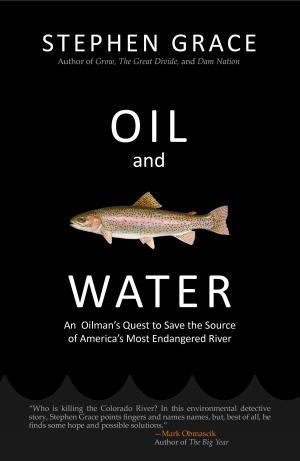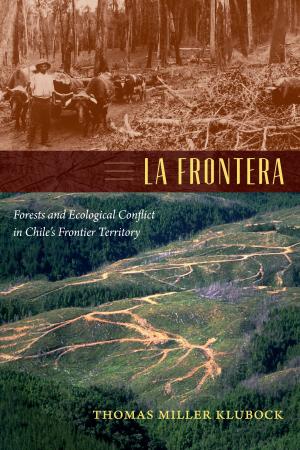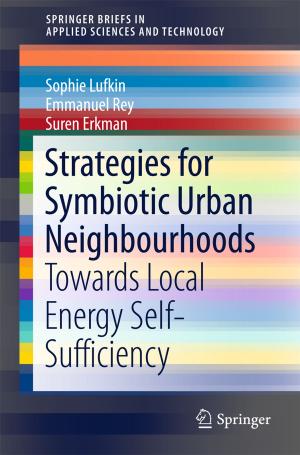Farming and the Fate of Wild Nature
Essays on Conservation-based Agriculture
Nonfiction, Science & Nature, Technology, Agriculture & Animal Husbandry, Nature, Environment, Environmental Conservation & Protection, Science, Biological Sciences| Author: | ISBN: | 9780984630424 | |
| Publisher: | Watershed Media | Publication: | July 16, 2012 |
| Imprint: | Watershed Media | Language: | English |
| Author: | |
| ISBN: | 9780984630424 |
| Publisher: | Watershed Media |
| Publication: | July 16, 2012 |
| Imprint: | Watershed Media |
| Language: | English |
Farming and the Fate of Wild Nature addresses an urgent and complex issue facing communities and cultures throughout the world: the need for heightened land stewardship and conservation in an era of diminishing natural resources. Agricultural lands in rural areas are being purchased for development. Water scarcities are pitting urban and development expansion against agriculture and conservation needs. The farming population is ageing and retiring, while those who remain struggle against low commodity prices, international competition, rising production costs, and the threat of disappearing subsidies. We are living amidst a major extinction crisis--much of it driven by agriculture--as well as an increasing shift toward a global urban populace. The modern diet, driven by a grain-fed livestock industry, is no longer connected with the ecosystems that support it. In international circles, experts are arguing that further intensification of agriculture (through industrialization and genetic modification) will be necessary to both feed an exploding human population and to save what is left of wild biodiversity.
This book takes up where its predecessor, the award-winning Farming with the Wild, left off. Featuring a wide range of in-depth essays, articles, and other materials by such authors as Aldo Leopold, Wendell Berry, Michael Pollan, Fred Kirschenmann, and Daniel Imhoff, this book persuasively demonstrates that farm and ranch operations which coexist with wild nature are necessary to sustain biodiversity and beauty on the landscape. In fact, as this invaluable educational resource demonstrates, they are essential in the challenge of building sane, healthy, and hopeful human societies.
This book takes up where its predecessor, the award-winning Farming with the Wild, left off. Featuring a wide range of in-depth essays, articles, and other materials by such authors as Aldo Leopold, Wendell Berry, Michael Pollan, Fred Kirschenmann, and Daniel Imhoff, this book persuasively demonstrates that farm and ranch operations which coexist with wild nature are necessary to sustain biodiversity and beauty on the landscape. In fact, as this invaluable educational resource demonstrates, they are essential in the challenge of building sane, healthy, and hopeful human societies.
Farming and the Fate of Wild Nature addresses an urgent and complex issue facing communities and cultures throughout the world: the need for heightened land stewardship and conservation in an era of diminishing natural resources. Agricultural lands in rural areas are being purchased for development. Water scarcities are pitting urban and development expansion against agriculture and conservation needs. The farming population is ageing and retiring, while those who remain struggle against low commodity prices, international competition, rising production costs, and the threat of disappearing subsidies. We are living amidst a major extinction crisis--much of it driven by agriculture--as well as an increasing shift toward a global urban populace. The modern diet, driven by a grain-fed livestock industry, is no longer connected with the ecosystems that support it. In international circles, experts are arguing that further intensification of agriculture (through industrialization and genetic modification) will be necessary to both feed an exploding human population and to save what is left of wild biodiversity.
This book takes up where its predecessor, the award-winning Farming with the Wild, left off. Featuring a wide range of in-depth essays, articles, and other materials by such authors as Aldo Leopold, Wendell Berry, Michael Pollan, Fred Kirschenmann, and Daniel Imhoff, this book persuasively demonstrates that farm and ranch operations which coexist with wild nature are necessary to sustain biodiversity and beauty on the landscape. In fact, as this invaluable educational resource demonstrates, they are essential in the challenge of building sane, healthy, and hopeful human societies.
This book takes up where its predecessor, the award-winning Farming with the Wild, left off. Featuring a wide range of in-depth essays, articles, and other materials by such authors as Aldo Leopold, Wendell Berry, Michael Pollan, Fred Kirschenmann, and Daniel Imhoff, this book persuasively demonstrates that farm and ranch operations which coexist with wild nature are necessary to sustain biodiversity and beauty on the landscape. In fact, as this invaluable educational resource demonstrates, they are essential in the challenge of building sane, healthy, and hopeful human societies.















